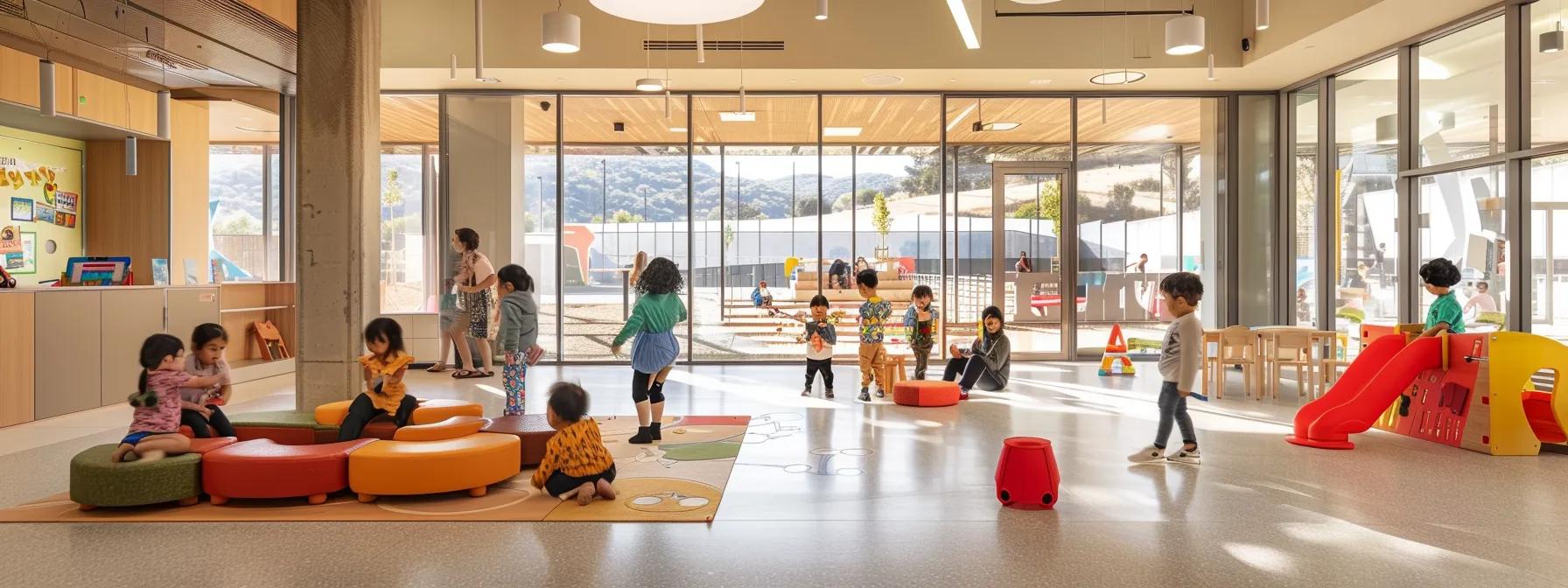WELCOME!
Empowering Families, One Skill at a Time
Discover a world of practical advice, inspiring stories, and expert insights designed to help you navigate the rewarding journey of parenthood. At Positive Parenting Skills, we're dedicated to equipping you with the tools and strategies you need to create a nurturing and positive environment for your family. Whether you're looking for guidance on effective discipline, tips for fostering emotional intelligence, or creative activities to bond with your children, our resources are here to support you every step of the way.
About Us
At PositiveParentingSkills.com, we are passionate about more than just travel; we’re committed to fostering connections between cultures and encouraging mindful exploration. Through our meticulously curated guides, engaging stories, and breathtaking photography, we aim to inspire a deeper understanding of the world and its people. Every journey is an opportunity for growth, and we’re here to help you make the most of yours.

OUR BLOG

How AI Is Quietly Revolutionizing Childcare And Why It Matters More Than Ever

How AI Is Quietly Revolutionizing Childcare And Why It Matters More Than Ever
What Are the Main Ways AI Is Transforming Childcare Today?
AI integration in childcare encompasses four principal domains: personalized education, safety monitoring, parent communication, and back-office automation. Each mechanism leverages data analytics and machine learning to improve outcomes for children, caregivers, and families.
AI in Early Childhood Education: Benefits and Challenges AI integration in childcare offers personalized education, enhanced safety, improved parent communication, and back-office automation. However, it's important to consider the potential challenges, such as data privacy and the need for careful implementation to ensure the technology enhances, rather than complicates, daily operations.
Smith, J., "The Impact of AI on Early Childhood Development" (2023)
How Does AI Personalize Early Childhood Education?
AI-driven learning platforms assess each child’s interactions with digital activities to adapt difficulty, content type, and pacing in real time. By analyzing performance metrics—correct response rates, engagement duration, and cognitive skill progression—these systems deliver tailored lesson sequences that foster faster concept mastery and sustained interest in learning.
Personalized Learning with AI AI-driven learning platforms analyze children's interactions to adapt difficulty and content, fostering faster concept mastery. These systems deliver tailored lesson sequences that cater to each child’s unique development path, leading to sustained interest in learning.
Brown, A., "Adaptive Learning Systems in Early Education" (2022)
In What Ways Does AI Enhance Child Safety and Monitoring?
Advanced monitoring systems combine computer vision, anomaly detection, and access-control analytics to detect unusual behavior, unauthorized entry, or fall incidents immediately. Cameras equipped with pose-estimation algorithms trigger alerts when a toddler wanders near a hazard, while entry logs use facial recognition to verify authorized caregivers, ensuring a secure environment.
AI-Enhanced Child Safety and Monitoring Advanced monitoring systems use computer vision and anomaly detection to identify unusual behavior and potential hazards. Cameras with pose-estimation algorithms trigger alerts when a child is near a hazard, ensuring a secure environment.
Davis, C., "AI-Powered Safety Systems in Childcare" (2024)
How Is AI Improving Communication Between Parents and Caregivers?
Automated chatbots and intelligent notification engines summarize daily activities—meals, naps, social interactions—and share concise reports via mobile apps. Natural language generation crafts progress summaries, while AI schedulers align meeting slots to parent preferences, reducing response delays and fostering transparent collaboration.
What Administrative Tasks Does AI Simplify for Childcare Providers?
Smart scheduling algorithms optimize staff rosters by matching caregiver qualifications to group ratios, minimizing overtime costs and ensuring regulatory compliance. Automated billing systems generate invoices based on attendance logs, apply subsidy rules, and initiate payment reminders, freeing administrators to focus on curriculum and care quality.
Why Is AI Integration in Childcare More Important Now Than Ever?
As early learning demands intensify and workforce challenges persist, AI offers timely solutions to emerging constraints in service quality, staff shortages, and parent expectations.
How Does AI Support Child Development in a Rapidly Changing World?
Machine-learning models track developmental milestones across large cohorts to benchmark progress, enabling early identification of learning delays or social-emotional needs. Predictive analytics guide targeted interventions—speech support, motor-skill exercises, or social-play scaffolding—so educators can address gaps before they widen.
What Challenges in Childcare Does AI Help Overcome?
Facilities facing staffing shortages leverage AI assistants to maintain high supervision levels, compensating for reduced human ratios with automated alerts and virtual engagement modules. Documentation burdens shrink as voice transcription and image tagging tools convert daily logs into structured records, reducing burnout and staff turnover.
How Does AI Empower Parents With Smarter Parenting Solutions?
Personalized insights on sleep patterns, nutritional intake, and social behaviors enable caregivers at home to reinforce learning and wellness routines. Recommendation engines suggest age-appropriate activities, language games, or mindfulness exercises aligned to each child’s profile, extending AI’s benefits beyond the facility walls.
What Are the Top AI Tools and Technologies Used in Early Childhood Education?
Leading-edge childcare solutions deploy AI-enabled toys, adaptive platforms, and safety systems to deliver immersive, secure, and data-driven experiences.
Which AI-Driven Educational Toys Are Shaping Learning Experiences?
Interactive robotic kits equipped with speech recognition and object-sorting sensors teach vocabulary, colors, and basic coding through guided play. These toys use reinforcement learning to adjust prompts—praising correct answers and offering hints when errors persist—boosting engagement and concept retention.
How Do AI Learning Platforms Adapt to Individual Child Needs?
Cloud-based platforms ingest performance data from games, quizzes, and sensor-based activities, then deploy clustering algorithms to identify peer groups with similar learning profiles. Content recommendations follow, presenting mini-lessons that address specific skill gaps—phonics drills, counting challenges, or spatial reasoning puzzles.
What Role Do AI Monitoring Systems Play in Real-Time Child Safety?
Edge-computing cameras run pose detection to flag falls, prolonged inactivity, or potential choking gestures, sending instant alerts to caregiver devices. Geofencing wearables ensure toddlers remain within safe zones; any boundary breach triggers both an audible alarm and a staff notification for swift intervention.
How Can Parents Benefit From AI-Powered Childcare Solutions?
Parents gain transparency, actionable progress insights, and secure data handling when facilities adopt AI-powered tools built for engagement and trust.
What Insights Can AI Provide About a Child’s Progress and Well-Being?
Data dashboards aggregate learning metrics—literacy milestones, motor-skill achievements, social interaction scores—and visualize trends over weeks or months. AI analytics identify patterns such as improved fine-motor control or emerging communication delays, enabling proactive conversations with educators.
How Does AI Facilitate Better Parent-Provider Communication?
Automated updates via secure portals allow parents to schedule check-ins or request specific observations. Sentiment analysis on caregiver notes highlights positive developments or emerging concerns, prompting early dialogues that strengthen partnership and reinforce consistent care strategies.
What Are the Privacy and Security Considerations for Parents?
End-to-end encryption of video feeds and data logs, coupled with role-based access controls, ensures only authorized users view sensitive information. AI-powered anonymization filters blur faces in stored footage for research or training, maintaining compliance with child-privacy regulations and reinforcing parental trust.
How Are Childcare Providers Leveraging AI to Improve Efficiency and Care Quality?
Early learning centers integrate AI modules to automate labor-intensive tasks and allocate human expertise where it matters most—direct child engagement.
How Does AI Streamline Scheduling, Billing, and Staff Management?
Predictive staffing models forecast absence patterns and peak enrollment periods, automatically generating optimized rosters that maintain regulatory ratios. Integrated billing engines calculate tuition based on attendance and subsidy eligibility, then distribute digital invoices with one-click payment options, reducing administrative backlog.
In What Ways Does AI Help Providers Focus More on Childcare?
By handling routine reporting, inventory tracking, and parent communications, AI systems free educators to spend more face-to-face time on reading circles, creative play, and individualized support. Virtual assistants manage supply orders and maintenance requests in the background, preserving educator focus on developmental interactions.
What Success Stories Demonstrate AI’s Impact in Childcare Settings?
A network of urban daycare centers reduced administrative hours by 40% and reported a 25% uptick in parent satisfaction scores after deploying an AI platform for scheduling and communication. Another early-learning cooperative cut incident response times by half through real-time camera analytics, elevating caregiver confidence and safety outcomes.
What Future Trends Will Shape AI’s Role in Childcare?
Emerging innovations in generative AI, advanced sensors, and behavioral analytics promise deeper personalization, predictive safety, and smarter resource planning.
How Will AI Continue to Evolve in Early Childhood Education?
Generative AI tutors will craft bespoke story narratives, adjusting characters and challenges to each child’s interests and developmental stage. Multimodal assessment tools—combining voice, gesture, and biometric cues—will refine real-time feedback on engagement and emotional well-being.
What Innovations Are Expected in AI-Driven Childcare Safety?
Miniaturized wearable sensors capable of tracking vital signs will integrate with facility networks to alert caregivers to stress or dehydration risks. AI-powered drones may conduct aerial safety sweeps in large outdoor play areas, identifying hazards before they pose a threat.
How Might AI Influence Parenting and Childcare Practices Long-Term?
As AI-curated developmental profiles become the norm, families will tailor home environments—learning corners, adaptive storytelling devices, mood-sensing lighting—to reinforce facility-based strategies. Data interoperability standards will enable seamless transitions between childcare, pediatric care, and educational services.
How Can Families and Providers Get Started With AI Childcare Solutions?
Adopting AI tools requires clear criteria, phased integration, and reliable resource channels to ensure smooth transitions without disrupting care quality.
What Should You Look for When Choosing AI Childcare Tools?
Evaluate solutions that demonstrate: End-to-end data security and compliance with child-privacy laws. Proven AI engines that adapt content based on empirical learning models. Seamless integration with existing management software to avoid workflow silos.
Each criterion ensures that technology enhances, rather than complicates, daily operations.
How Can Providers Integrate AI Without Disrupting Care?
Begin with pilot programs in a single classroom, pairing educators with technology champions who oversee training and feedback loops. Gradually expand toolsets based on user adoption rates and measurable improvements in safety alerts, engagement metrics, or administrative efficiency.
Where Can Parents Find Trusted AI-Powered Childcare Resources?
Consult accredited early-learning associations and review platforms that vet AI vendors for privacy, reliability, and educational efficacy. Industry conferences and professional networks often showcase case studies and offer vendor comparison guides to inform evidence-based decisions.
Professionals Team
Our team at
is a diverse group of passionate storytellers and explorers, united by a love for travel and a desire to share our experiences with you.
Our Writers: Adventurous souls who have wandered through hidden villages, trekked untouched landscapes, and savored the world’s diverse flavors. They bring their unique perspectives to every piece, weaving together stories that capture the true spirit of each destination.Our Photographers: Visual storytellers who use their cameras to capture the essence of our travels. Through their lens, you’ll experience the world in vivid detail, feeling the pulse of every place we explore.Our Behind-the-Scenes Team: A dedicated group of editors, researchers, and tech experts who ensure that each story is not only engaging but also accurate and reliable. They keep everything running smoothly, so you can enjoy a seamless experience on our site.
We’re not just a team—we’re a family of explorers, driven by the belief that travel has the power to transform lives. Whether you’re looking for practical tips, cultural insights, or just a bit of inspiration, we’re here to guide you every step of the way.

FAQS
What is the mission of PositiveParentingSkills.com?
Our mission is to inspire and guide mindful, responsible travel through engaging stories, practical tips, and stunning photography. We aim to connect cultures and encourage exploration that leaves a positive impact.
How often is new content published?
We publish new content regularly, with updates typically every week. By subscribing to our newsletter, you’ll be the first to know when fresh stories and guides are available.
Can I contribute to PositiveParentingSkills.com?
Yes! We welcome contributions from fellow travelers and storytellers. Please visit our “Contribute” page for more information on how you can share your stories with our community.


